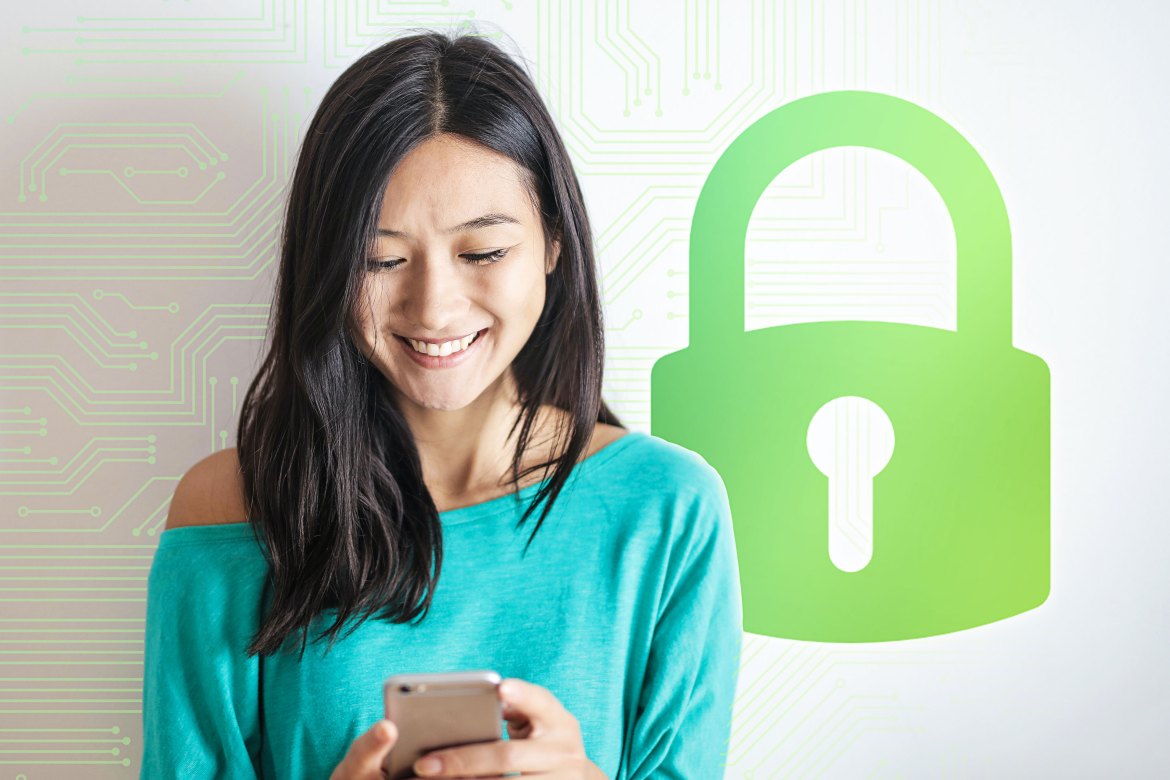Aside from locking your phone with passcodes, such as using a pattern, PIN, fingerprint, or facial recognition, there are other ways to make sure your personal data is safe while using your mobile phone.
Here are 5 tips to protect your privacy while using your phone:
Use VPNs
Virtual Private Networks (VPN) protect your privacy by making sure your online activity is untrackable. VPN protects your IP Address by encrypting your internet connection so nobody, even your internet service provider, can monitor your activity. If hackers get a hold of your IP Address, they can determine your location and identity which they can use to gather more sensitive information about you.
According to a VPN provider, hackers can use your IP Address to: hack your device, impersonate you, or worse, frame you for illegal online activities.
Stay on the lookout for links
Swindlers and scammers are becoming more and more creative when it comes to disguising links. It’s always best to stay wary and cautious of the links you click online, especially in emails and online video sharing sites.
Suspicious links usually look like legitimate websites but are misspelled, or links that point to IP addresses and .exe files. Some malicious sites are also able to use the same name of a legitimate website, but are in a different top-level domain (samplewebsite.com is not the same as samplewebsite.ph). If you’re unsure whether the link is legitimate or not, you may use online tools such as Google’s site checker.
Enable Two-Factor Authentication
Especially useful for online accounts which could potentially contain valuable information, 2FA, or Two-Factor Authentication is a method that can be used when logging in to your online accounts. Usually, you only have to type in your username and password to login, but with 2FA, another layer of security is added.
Although not all websites or mobile apps (ex: social media apps, digital banking apps, e-commerce apps, etc.) offer 2FA, it is highly suggested that you activate it whenever possible. Popular websites and apps like Google, Apple, Facebook, Twitter, or Tiktok have already enabled this.
Always check app permissions
Ever downloaded an app that just won’t function until you don’t give it permission to access your files? It’s best to steer clear of that. Here are some app permissions that you might want to watch out for: access to camera, contacts, gallery, calendar, location, biometrics; sending text messages, making calls, and authenticating accounts.
Once given permission, malicious apps can freely access these phone features and exploit your data. For Android users, it’s also best to avoid installing apps on your phones through APKs (Android Application Package). Although not all APKs are dangerous, there are still a number of harmful apps that can potentially do damage to your mobile phone. In addition, some APKs are a form of piracy and are illegal.
Always update your device’s software
According to Norton, software updates are all about revisions. It’s about constantly revising your device’s software to make sure your phone is always in tip-top shape. Updates may include upgrades to enhance your phone’s performance, or to tweak something to speed up your phone, and more importantly, repairing of security loopholes.
Constantly updating your device’s software whenever applicable helps ensure all your built-in security walls are always up, and that any damages are fixed. If hackers find a way to creep into your device’s system, they may have access to all of your personal information stored on your mobile device.
While it’s nice and fun to enjoy your phone, it’s still important that you protect your privacy at all times. Download the GigaLife app now and subscribe to Smart’s data promos so you can start setting up 2FA on your online accounts, download a VPN app, or check for updates on your phone’s software.



